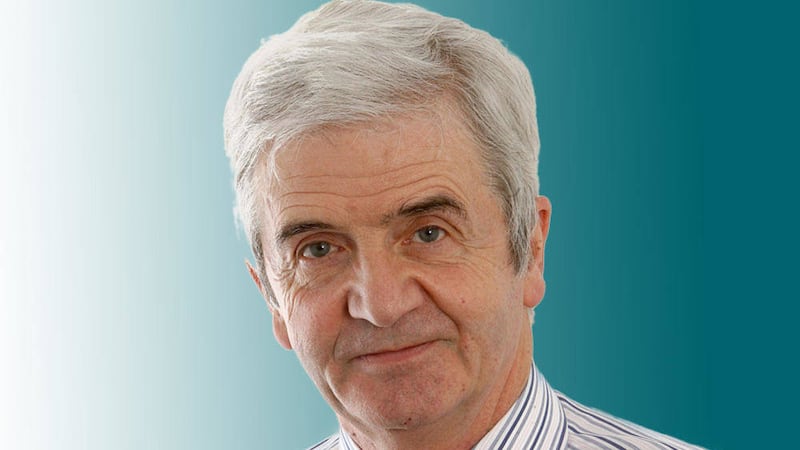They say that history repeats itself, first as tragedy, then as farce. Well, Karl Marx said so anyway and while deeply religious Ireland has traditionally ignored him, he may have a point.
He argued that despite revolution, social upheaval or just plain bloody war, nothing much changes in most societies. The poor remain poor and power remains beyond them. A new elite rules when the old one has gone.
His theory could apply to events here since 1969. While those now in power promised a bright, brand new day, the sad truth is that putting nationalists in government made little difference to the lives of ordinary people.
If you disagree, you might like to explain the Nama scandal, or perhaps you could reflect on a recent event, which so eloquently exemplified the farcical repeat of our tragic history of 43 years ago.
In 1972, Richard Nixon was bombing Hanoi and the Provisional IRA was bombing Belfast.
The Northern Ireland Civil Rights Association (NICRA) had been driven off the streets by the Bloody Sunday killings in January, and the IRA swallowed the British bait of joining an all-out military war for Irish unity. Nothing less would do, despite the impending sectarian bloodbath.
It was a time of endless tragedy. In March, the IRA bombed the Abercorn Restaurant, killing two young women and injuring seventy others. Two weeks later, an IRA bomb killed seven people in Donegall Street. By December there had been almost 500 deaths, 2,000 explosions and 10,000 shootings.
On March 28, Stormont was suspended. NICRA said it was a retrograde step and maintained its policy of no talks until internment ended. But the IRA cheered and pushed for victory, in what it called the year of freedom. (Most subsequent years in the 1970s were given the same designation.)
Following a secretly negotiated ceasefire, IRA representatives agreed to meet the British government in July- provided the meeting was not in Stormont.
They met in London. The civil rights pledge on talks had been broken. It is reported that six men representing the IRA's case were flown to a RAF base in England. Among them were Gerry Adams and Martin McGuinness.
They were taken by a fleet of limousines to the central London home of government minister, Paul Channon, where they met Mr Whitelaw. (No one appears to have commented that both men were Tory millionaires.)
The IRA representatives reportedly wanted an amnesty for their prisoners, a withdrawal of troops and British acceptance of the right of the Irish people to determine Ireland's future.
Apparently the British were willing to negotiate on the first two, but they were not prepared to concede the unionist veto. (As in the 1998 negotiations, education, health and welfare were unworthy of mention.)
In addition to the tragedy of violence, the PIRAtragically failed to agree what could have been a better deal than they later achieved in 1998. The ceasefire ended. To make the north ungovernable, the IRA launched a ferocious offensive, largely against the civilian population. On July 21, they detonated 26 Belfast bombs in an hour and a half, killing nine people and injuring 130, including 77 women and children.
Ten days later, three car bombs exploded in the Derry village of Claudy, killing five Catholics and four Protestants, including an eight year old girl.
Last week saw history's repetition as farce. Gerry Adams and Martin McGuinness flew to London again (presumably on a civilian airline) to hopefully negotiate with the British government for money to keep Stormont afloat. Their threat this time was to leave Northern Ireland ungoverned. Again the British refused to budge.
It was 43 years and about 2,000 deaths after their first London visit. By 2015 Sinn Féin had accepted the unionist veto, recognised the legitimacy of partition and agreed that the Irish nation does not include unionists.
In fairness, this time they presented a social and economic argument of sorts, but it was weak. They argued that the post-conflict north was a special case, thereby suggesting that the cuts in the rest of the United Kingdom were somehow justified.
The party's failure to make a stronger argument may have prompted last week's decision, after 25 years of war and almost 20 years of peace, to appoint an economic adviser at Stormont. (Try to visualise a closed stable door and a rapidly disappearing horse.)
Sinn Féin says Stormont's collapse would be a tragedy. Others argue that it would be a welcome change from farce. That is the problem with tragedy and farce in this country - sometimes it can be hard to tell the difference.









